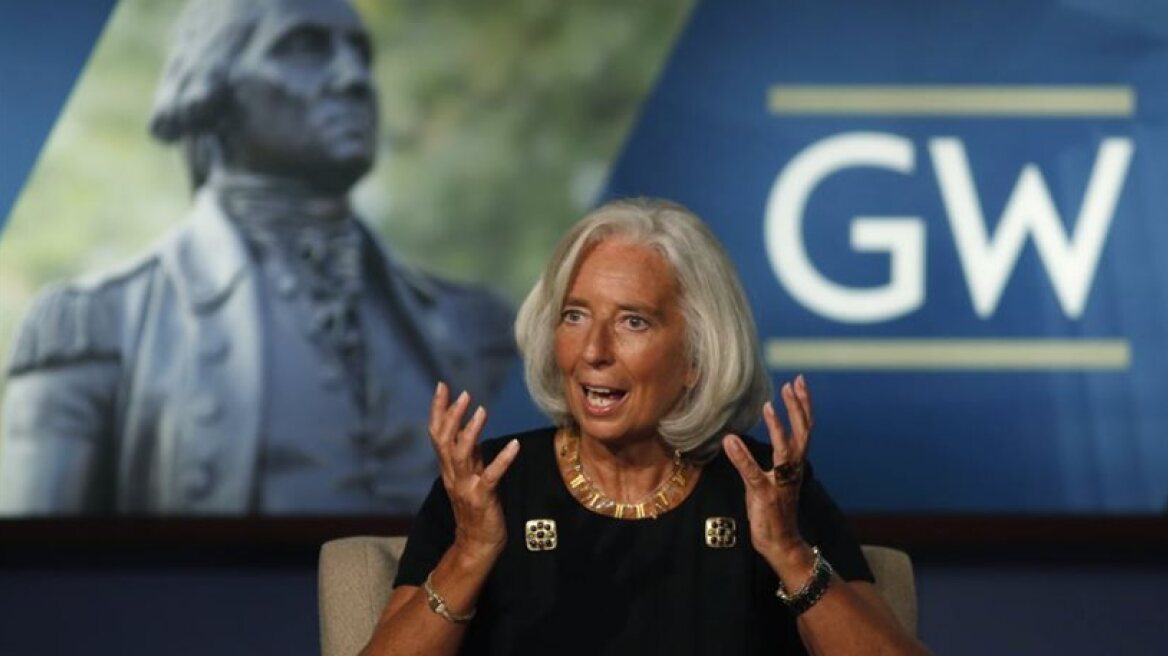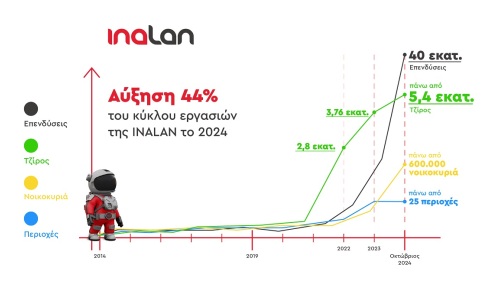
Lagarde: "Yes" to a debt haircut - Asmussen: IMF is talking about other people’s money
Lagarde: "Yes" to a debt haircut - Asmussen: IMF is talking about other people’s money
The debt crisis in Greece was one of the main themes of the annual meeting of the International Monetary Fund and the World Bank in Washington.

Disagreements at the annual meeting of the Fund and the World Bank - Olli Rehn said he does not believe that a new "haircut" is necessary
The debt crisis in Greece was one of the main themes of the annual meeting of the International Monetary Fund and the World Bank in Washington.
IMF reaffirmed the "commitment of Europeans" to deal with the Greek debt, praising the Greek authorities for a "significant progress" so far. IMF chief Christine Lagarde urged European partners to honor the commitments they made in November 2012 to further reduce the debt if Greece managed to achieve a primary surplus.
From the Eurozone side, European Commissioner Olli Rehn said he does not believe that a new haircut is necessary and that decisions will be taken "some time during the next summer."
Sensation was caused by the placement of the European Central Bank member, Jörg Asmussen that "the IMF is talking about the money of other people," adding that the IMF is a small lender and has ensured it will get back the money it lent to Greece.
Finally, IMF European department head, Reza Moghadam, said it is too early to assess the sustainability of the Greek debt.
The debt crisis in Greece was one of the main themes of the annual meeting of the International Monetary Fund and the World Bank in Washington.
IMF reaffirmed the "commitment of Europeans" to deal with the Greek debt, praising the Greek authorities for a "significant progress" so far. IMF chief Christine Lagarde urged European partners to honor the commitments they made in November 2012 to further reduce the debt if Greece managed to achieve a primary surplus.
From the Eurozone side, European Commissioner Olli Rehn said he does not believe that a new haircut is necessary and that decisions will be taken "some time during the next summer."
Sensation was caused by the placement of the European Central Bank member, Jörg Asmussen that "the IMF is talking about the money of other people," adding that the IMF is a small lender and has ensured it will get back the money it lent to Greece.
Finally, IMF European department head, Reza Moghadam, said it is too early to assess the sustainability of the Greek debt.
Participants in the meeting also talked about the situation and prospects of the global economy, emerging markets, the stalemate in the U.S., the Eurozone debt crisis, and the balance of power in decision making for the global economy.
For the course of the global economy, IMF expressed concern for "destabilization" of emerging markets, saying that the central banks of developed economies should act carefully in the field of monetary policy in order to avoid destabilization of the emerging markets.
IMF added that the global economic recovery continues, with improvements in developed economies, but with moderate growth in emerging markets. Also, that there are still threats for a downward path, and that the crisis in the U.S. poses serious risks. For the U.S., the IMF called for decisions as early as possible so as to address short-term budgetary uncertainties.
For the Eurozone, the IMF predicted that more countries will emerge from recession in 2014 and it is necessary to proceed with structural reforms, notably in the areas of labor relations, services and trade.
Analysts estimate that in this year's annual meeting of the IMF and the World Bank participants failed to make "historic changes" in order to give more weight to emerging markets. Also, that there are "major delays" on the reforms of operation and mission of the IMF, one of the main reasons being the deadlock in the U.S. because of its role as a member of the Fund.
For the course of the global economy, IMF expressed concern for "destabilization" of emerging markets, saying that the central banks of developed economies should act carefully in the field of monetary policy in order to avoid destabilization of the emerging markets.
IMF added that the global economic recovery continues, with improvements in developed economies, but with moderate growth in emerging markets. Also, that there are still threats for a downward path, and that the crisis in the U.S. poses serious risks. For the U.S., the IMF called for decisions as early as possible so as to address short-term budgetary uncertainties.
For the Eurozone, the IMF predicted that more countries will emerge from recession in 2014 and it is necessary to proceed with structural reforms, notably in the areas of labor relations, services and trade.
Analysts estimate that in this year's annual meeting of the IMF and the World Bank participants failed to make "historic changes" in order to give more weight to emerging markets. Also, that there are "major delays" on the reforms of operation and mission of the IMF, one of the main reasons being the deadlock in the U.S. because of its role as a member of the Fund.
Ακολουθήστε το protothema.gr στο Google News και μάθετε πρώτοι όλες τις ειδήσεις
Δείτε όλες τις τελευταίες Ειδήσεις από την Ελλάδα και τον Κόσμο, τη στιγμή που συμβαίνουν, στο Protothema.gr
Δείτε όλες τις τελευταίες Ειδήσεις από την Ελλάδα και τον Κόσμο, τη στιγμή που συμβαίνουν, στο Protothema.gr
ΡΟΗ ΕΙΔΗΣΕΩΝ
Ειδήσεις
Δημοφιλή
Σχολιασμένα






































